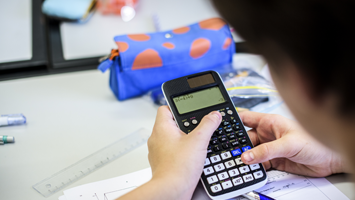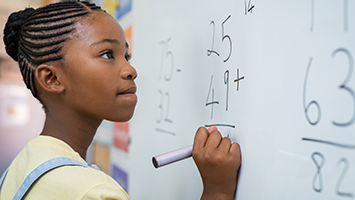The End of Knowing
 A few years ago, I witnessed a debate between two teachers. One was arguing vehemently about the merits of knowing all the US state capitals. The other was equally as adamant that memorizing states and capitals was a useless endeavor because you can just search any of them with the push of a few buttons. At the time, I leaned more toward the latter but I did see the merits of a brain exercise that wasn’t so reliant on technology.
A few years ago, I witnessed a debate between two teachers. One was arguing vehemently about the merits of knowing all the US state capitals. The other was equally as adamant that memorizing states and capitals was a useless endeavor because you can just search any of them with the push of a few buttons. At the time, I leaned more toward the latter but I did see the merits of a brain exercise that wasn’t so reliant on technology.
I would imagine that for many people, this question today may seem like a “no brainer.” I would imagine that finding the person who can rattle off all 50 states and capitals is a difficult task. I would also submit, however, that this “no brainer” question is the very conundrum our schools are facing today.
Most classrooms today are still structured and designed around the process of transmitting knowledge, or more specifically, content. Most of our teachers spend the better part of their time and energy delivering content to students, while hoping that students digest that content well enough to regurgitate it back to them at some later date. This process of depositing and regurgitation has been at the very heart of our education system for years and continues to be the dominant form of how we measure learning. It is based on “knowing things” as the ultimate goal of schooling.
In the last few years, we have seen our world shift dramatically. We have seen robots that can now perform difficult tasks on par with or better than the most astute humans. We have experienced schooling upended by a pandemic that required students and teachers en masse to shift to fully virtual settings. We have seen algorithms and artificial intelligence predict for us what videos, TV shows, and movies we should choose to watch next. We have seen a workforce begin to grapple with what it looks like when automation decimates entire professions and careers.
We are experiencing that the mere act of knowing doesn’t hold the same weight as it once did, so we must ask the question, why do we continue to structure so much of our learning institutions around this concept?
 In light of these dramatic shifts, we must push educators to move beyond the system of knowing as the highest aim of learning. Though there remains an important place for content knowledge, we are required to seek more dynamic and innovative ways of facilitating and assessing a new aim of learning. Today, students need to be able to find information, synthesize ideas, collaborate with peers, utilize information, create new insights and strategies, and build projects or products. And they must be able to do this on an ongoing basis.
In light of these dramatic shifts, we must push educators to move beyond the system of knowing as the highest aim of learning. Though there remains an important place for content knowledge, we are required to seek more dynamic and innovative ways of facilitating and assessing a new aim of learning. Today, students need to be able to find information, synthesize ideas, collaborate with peers, utilize information, create new insights and strategies, and build projects or products. And they must be able to do this on an ongoing basis.
The next era of human development is already upon us where the skill of being in a continuous state of learning is vastly more important than any specific body of content. At LINC, we call this the skill of generativity. It is one’s ability to be constantly reflecting, growing, adapting, and iterating within and based upon one’s environment. It is even one’s ability to be critical of one’s own thinking.
The generative human does not rely on any specific base of content knowledge as their value. They cultivate their ability to be continuously learning and adjusting to a dynamic and rapidly changing environment. We must transform the ultimate aim of our education system to develop generative students (or thinkers) who are able to collaborate, think critically, persevere in the face of challenges to push our society further.